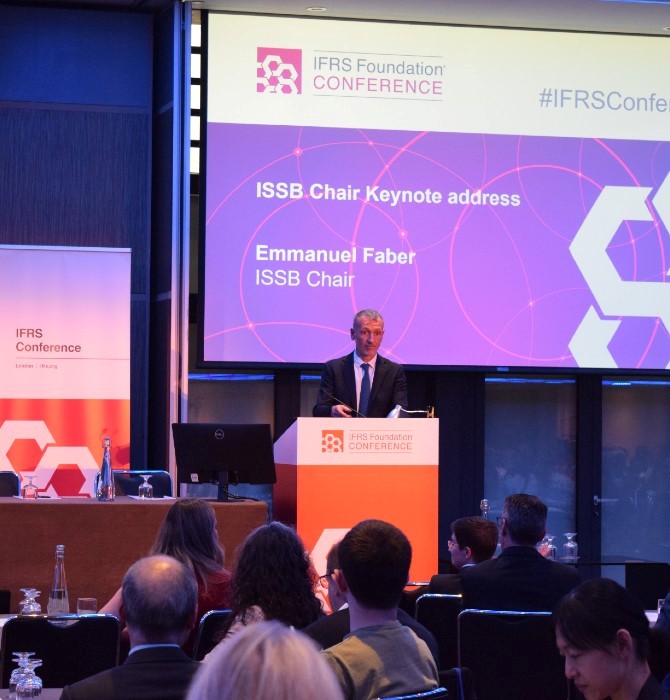The International Sustainability Standards Board (ISSB) has launched its two inaugural global sustainability reporting standards: IFRS S1 and IFRS S2.
Released today in London at the first of a series of conferences the IFRS will hold around the globe, the standards have been in development for more than 18 months – since the IFRS Foundation Trustees announced in 2021 it would work to provide global financial markets with high-quality disclosures on climate and other sustainability issues.
The two standards, which cover general requirements for disclosure and climate-related disclosures, respectively, ‘have been designed to help companies tell their sustainability story in a robust, comparable and verifiable manner,’ says Emmanuel Faber, chair of the ISSB.
‘We have consulted closely with the market to ensure the standards are proportionate and will result in disclosures that are relevant for investment decision-making. We know that better information leads to better economic decisions.’

Addressing delegates, Faber said the launch is just a starting point: ‘We [now] confidently wait for the results of a very slow process. The release of the standards is [a] changing moment in the ability of markets to benefit from the work we have started here.’
In an interview with Corporate Secretary sister publication IR Magazine, Sue Lloyd, vice chair of the ISSB, notes that today’s launch reminds people about why the IFRS was established and what it has set out to achieve.

‘[It’s about] taking the opportunity to make the point all over the world that this is removing the alphabet soup, bringing robust reporting that investors can rely on to understand sustainability risks and opportunities and for companies to communicate with the investor community to attract capital. And we are reminding people of that as a core message around the world,’ she says.
The IFRS S1 and IFRS S2 standards will be effective from January 2024. This means businesses would collect sustainability disclosure information for the 2024 reporting cycle and publish reports in 2025.









